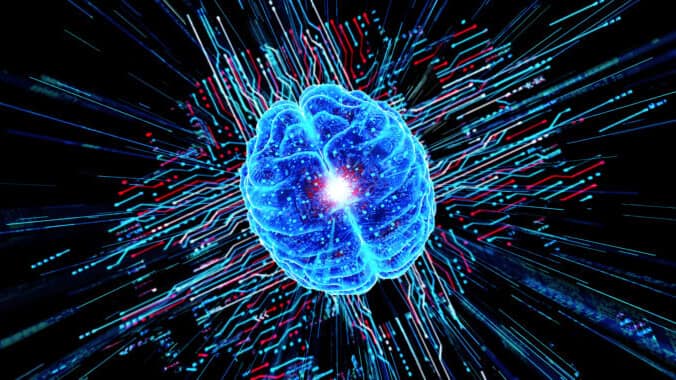
AI sentience: Scientists can't agree if machines are alive yet
What's the story
The rapid evolution of artificial intelligence (AI) is blurring distinctions between human behaviors and machine capabilities. The emergence of artificial general intelligence (AGI), AI that surpasses human intellect, could potentially obliterate these boundaries. This possibility has ignited a debate among scientists, about the moral and legal implications if AGI machines develop consciousness, experiencing feelings, thoughts, and desires similar to humans.
Von Neumann bottleneck
Current computer architecture limits conscious AI
Modern computers, operating on energy-intensive Von Neumann architecture, separate memory from processing. This requires information retrieval from memory before performing calculations, a limitation known as the Von Neumann bottleneck. "Classical Von Neumann computers have a separation between memory and processing," explains Stephen Deiss, a retired neuromorphic engineer from UC San Diego. This bottleneck hinders current computers from matching or even nearing the processing capacity of the human brain.
Process
How do neuromorphic chips work?
To overcome the processing limitations of current computers, scientists are developing neuromorphic chips that mimic neuronal architecture. Some of these processors integrate memory storage and processing units on a single chip, while others use specialized low-powered elements like memristors to enhance efficiency. "A compute-in-memory device, which includes things like neuromorphic computers, uses the actual physics of the hardware to do the computation," Deiss explains.
Conscious AI
Potential of neuromorphic computers
Neuromorphic technology, if it can accurately replicate neuronal activity, might offer neuromorphic computers a greater potential for conscious experience rather than just intelligent computation. Deiss suggests that if we achieve the level of processing complexity a human brain can do, then we could consider neuromorphic computers as potentially conscious. "This is working just like a brain—maybe it feels things just like we feel things," he said.
Study
Theories to ascertain AI consciousness
To ascertain whether AI can have consciousness, scientists have devised three theories. They are Integrated Information Theory, Global Neuronal Workspace Theory, and Attention Schema Theory. These theories are being experimentally challenged. However, a timeline as to when their results will be out has not been disclosed.